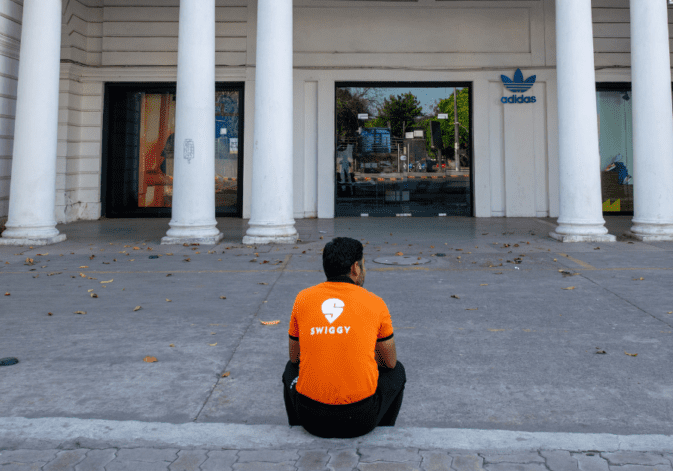In the wake of a recent incident where a delivery executive of food delivery giant Swiggy was attacked by a customer in Bengaluru, a gig workers’ body has raised concerns about the safety of its delivery executives. The incident, which took place on February 27, triggered an online outrage, with many people calling for a boycott of the platform. The delivery executive sustained serious injuries and had to be hospitalized, while the customer was arrested.
The Indian Federation of App-based Transport Workers (IFAT) has called for a boycott of Swiggy and other food delivery platforms until they take concrete steps to ensure the safety of their workers.
Speaking to the media, Shaik Salauddin, national president of IFAT, said, “We demand that Swiggy and other food delivery platforms ensure the safety of their delivery executives. These workers risk their lives every day to deliver food to customers, and they deserve to be protected.”
IFAT has demanded that Swiggy and other food delivery platforms implement safety measures such as providing personal protective equipment (PPE) to delivery executives, conducting background checks on customers, and creating a hotline for delivery executives to report safety concerns.
The boycott campaign has gained momentum on social media, with many people sharing stories of the abuse and harassment faced by delivery executives. Many users have also shared tips on how to ensure the safety of delivery executives, such as providing well-lit and easily accessible delivery locations.
Swiggy has responded to the campaign by issuing a statement expressing concern for the safety of its delivery executives. The company has said that it is working on implementing safety measures, such as conducting background checks on customers and providing PPE to delivery executives.
“Swiggy strongly condemns any form of violence or abuse directed towards our delivery partners,” the statement read. “We are working with local authorities to ensure that the perpetrators of this incident are brought to justice. We are also taking steps to ensure the safety of our delivery partners, including conducting background checks on customers and providing PPE to our partners.”
lockquote>
The statement, however, did not address IFAT’s demand for a hotline for delivery executives to report safety concerns.
The incident has once again raised questions about the safety of gig workers, who are often not protected by the same labor laws as traditional employees. The gig economy, which includes platforms such as Swiggy, has seen rapid growth in recent years, with many workers relying on these platforms for their livelihoods.
In response to the incident, the Karnataka state government has issued a circular directing all food delivery platforms to ensure the safety of their workers. The circular, issued by the Department of Labor, states that food delivery platforms must conduct background checks on customers and provide PPE to their delivery executives.
The circular also directs food delivery platforms to create a hotline for delivery executives to report safety concerns and to provide them with insurance coverage.
The incident has once again highlighted the need for greater protection for gig workers, who are often at risk of abuse and harassment while performing their duties. The boycott campaign is likely to continue until Swiggy and other food delivery platforms take concrete steps to ensure the safety of their workers.


